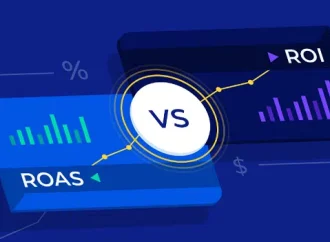In the digital era, our online identity has become as important as our physical one. With an increasing number of personal details and sensitive information shared over the internet, cybercriminals are always on the prowl to exploit any vulnerability they can find. This is why cybersecurity should be at the forefront of every individual’s priorities
In the digital era, our online identity has become as important as our physical one. With an increasing number of personal details and sensitive information shared over the internet, cybercriminals are always on the prowl to exploit any vulnerability they can find. This is why cybersecurity should be at the forefront of every individual’s priorities when it comes to safeguarding their online identity. In this blog post, we will explore why cybersecurity is essential in today’s world and how you can protect yourself from potential threats lurking around cyberspace!
What is cybersecurity?
When it comes to safeguarding your online identity, cybersecurity is essential. With so much of our lives now taking place online, from shopping and banking to socializing and working, it’s more important than ever to make sure our personal information is protected from cyber criminals.
There are a number of ways to do this, but some basic steps include using strong passwords, keeping your software up to date, and being cautious about what you click on and download. Additionally, consider using two-factor authentication wherever possible, as this adds an extra layer of security.
Of course, even with these precautions in place, there’s no guarantee that your information will never be compromised. That’s why it’s also important to have a plan in place for what to do if your data is stolen or your accounts are hacked. This might include having a backup of all your important files and changing all your passwords immediately.
By taking these steps and staying informed about the latest cybersecurity threats, you can help protect yourself and your online identity.
The increasing threat of cybercrime
With the increasing use of technology in our everyday lives, the threat of cybercrime is also on the rise. Cybercriminals are becoming more sophisticated in their methods and are constantly finding new ways to exploit vulnerabilities in our online systems.
While there are many steps that individuals and businesses can take to protect themselves from cybercrime, it is important to remember that no system is 100% secure. The best defense against cybercrime is a multi-layered approach that includes both preventative measures and detection/response capabilities.
Some of the most common preventative measures include:
-Using strong passwords and encrypting sensitive data
-Restricting access to systems and data to authorized users only
-Regularly backing up data and keeping offline copies in a secure location
-Implementing security controls such as firewalls and intrusion detection/prevention systems
If you believe you have been a victim of cybercrime, it is important to act quickly. Some common signs include:
-Unexplained changes or unusual activity on your computer or other devices
-Receiving unexpected emails or messages from unknown persons
-Suspicious charges on your credit card or other financial accounts
If you suspect you have been a victim of cybercrime, there are a few things you should do immediately: -Change all passwords for your online accounts -Notify your financial institution -Report the incident to law enforcement -Contact a reputable cybersecurity firm for assistance
The importance of cybersecurity
As we become increasingly reliant on technology, it’s important to be aware of the dangers of cybercrime. Cybersecurity is the practice of protecting electronic information from unauthorized access or theft. This can include personal data, such as credit card numbers or social security numbers, as well as confidential business information.
There are a number of reasons why cybersecurity is so important. First, cybercrime is on the rise. According to the FBI, there were more than 4,000 reported cyber incidents in 2019, which led to over $2.7 billion in losses. This is an increase of over 30% from the previous year. As our dependence on technology grows, so do the opportunities for cybercriminals to exploit vulnerabilities.
Second, the cost of a cyberattack can be significant. A single breach can cost a company millions of dollars in damage control and recovery expenses. In addition to the financial cost, a breach can also damage a company’s reputation and lead to loss of customer trust.
Finally, cybersecurity is critical for national security. The United States government relies heavily on computer systems for everything from communications to critical infrastructure. If these systems were to be compromised, it could have devastating consequences for our country.
Cybersecurity is an essential part of keeping our online identities safe from theft and exploitation. By taking steps to protect our data and networks, we can help reduce the risk of becoming victims of cybercrime.
How to safeguard your online identity
In today’s digital world, safeguarding your online identity is essential to protecting your personal information and preventing fraud. Here are some tips to help you stay safe online:
• Use strong passwords that are difficult to guess. Avoid using easily guessed words like your name or birthdate.
• Don’t use the same password for all of your accounts. If one account is compromised, all of your accounts are at risk.
• Keep your passwords confidential. Don’t share them with anyone, even family or friends.
• Enable two-factor authentication wherever possible. This adds an extra layer of security to your accounts.
• Be careful about what you share online. Think twice before sharing personal information or posting anything that could be used against you.
• Keep your software and antivirus programs up to date. Regular updates can help protect you from the latest security threats.
The different types of cybersecurity threats
There are many different types of cybersecurity threats that can jeopardize the safety of your online identity. Some of the most common include viruses, malware, phishing attacks, and cybercrime.
Viruses are malicious software programs that can infect your computer and wreak havoc. Malware is similar to a virus, but it is designed to steal information or money rather than cause damage. Phishing attacks are attempts by criminals to trick you into revealing sensitive information, such as passwords or credit card numbers. Cybercrime is any illegal activity that takes place online, ranging from identity theft to cyberstalking.
Each of these Threats pose a serious risk to your online identity and should be taken seriously. By understanding the different types of threats out there, you can take steps to protect yourself and stay safe online.
Conclusion
Cybersecurity is essential for protecting yourself and your online identity. A strong password, two-factor authentication, keeping your operating system up to date and using secure networks are just a few of the steps you can take to keep yourself safe from cybercriminals. Additionally, it is important to educate yourself about cybersecurity so that you can make informed decisions when it comes to safeguarding your sensitive data. By following these tips, you will be well on your way to having an extra layer of protection against cybercrime.





















Leave a Comment
Your email address will not be published. Required fields are marked with *